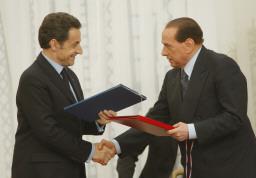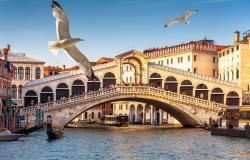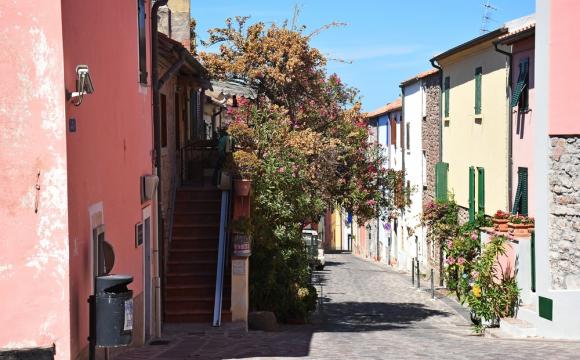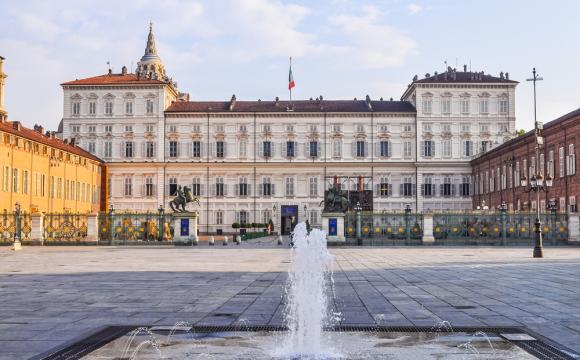Italy and France on Tuesday signed a landmark cooperation accord which set the stage for Italy's return to nuclear power after more than 20 years.
The accord was signed here by Italian Premier Silvio Berlusconi and French President Nicolas Sarkozy and calls for the building of at least four nuclear power plants in Italy, using French technology, and the participation of Italian electricity utility ENEL in the construction of another five plants in France.
''We must wake from our slumber because renewable energy and nuclear power are the future. With France by our side and thanks to its know-how we will be able to make up for a lot of years and build plants in an acceptable period of time,'' Berlusconi said after the signing.
''In the 1970s we were in the forefront of nuclear technology but then, because of a certain ideological fanaticism, we interrupted the building of two new plants which were close to completion,'' he added.
Italy abandoned nuclear energy after a 1987 referendum, the result of which was strongly influenced by the Chernobyl disaster in Russia the previous year.
However, a poll taken last August, when oil was at a record high, found that an absolute majority of Italians now favor a return to nuclear power, while only one third oppose it.
This was a sharp difference from a year earlier when a similar poll found that some 82% of Italians disliked the idea of a return to nuclear power.
SARKOZY PRAISES ITALY'S G8 PRESIDENCY.
Also on the agenda of Tuesday summit were the global economic crisis and bilateral cooperation in defense, education and pan-European transportation projects.
The meeting allowed the two leaders to touch base ahead of a London G20 summit in April and the G8 summit which Italy will host in Sardinia in July.
Speaking to the press after their talks, Sarkozy hailed Italy's decision to extend much of July's G8 summit to include emerging economies.
As G8 president, he observed, Italy had made a ''historic decision'' to dedicate ''so much time'' at the summit to the G5 leading emerging economies (Brazil, China, India, Mexico and South Africa) plus Egypt.
''In this way Italy is putting into practice a French idea,'' Sarkozy said, adding that France will support Italy while it carried out the ''heavy responsibility of guiding the G8''.
Turning his attention to the economic crisis, the French president said that if the US adopts measures to protect its economy, then the European Union must do the same.
''If the US defends its farmers, as it is doing, perhaps we in Europe may do so. If the United States defends its industry, perhaps we may do so too,'' Sarkozy said.
He added that France and Italy would ''make their common voice'' heard at an EU anti-crisis summit on Sunday ''to ask Europe to take strong decisions''.
What was required, Sarkozy said, was ''more coordination and determination'' rather than ''naivety''.
During their joint press conference, Sarkozy also hailed Rome's efforts to overcome local resistance to a key high-speed rail link through northwestern Italy.
''I have greatly appreciated Silvio Berlusconi's efforts to persuade local communities to move forward with the Turin-Lyon rail line,'' Sarkozy said.
Successive Italian governments have struggled to win over locals opposed to the link, which is a key part of the EU's so-called Corridor 5.
The French side of the line was completed years ago.
The Italian part is currently slated to enter the planning stage next year with work scheduled to begin in 2013 and end about ten years later.
In order for the Italian-French nuclear accord to become operative, Rome must first modify the Italian laws adopted when nuclear power was abandoned 20 years ago.
A government bill aimed at this is currently more than half its way through the legislature.
ENEL has already acquired a 12.5% share in the first European Pressurized Reactor (EPR) being built in Normandy by French energy giant EdF and with this accord will now participate in the building of five more EPR plants in France.
The same technology will be used in the four plants in Italy, the sites for which have yet to be decided, with the first set to enter operation by 2020.













